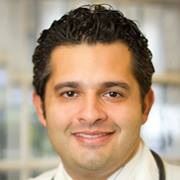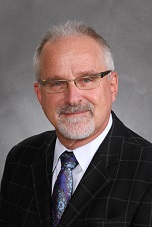Six gastroenterologists discuss the best opportunities for GI practice expansion this year.
Ask Gastroenterologists is a weekly series of questions posed to gastroenterologists and colorectal surgeons around the country on business and clinical issues affecting the field of gastroenterology. We invite all GI physicians to submit responses. Next week's question: How can gastroenterologists improve GI practice efficiency?
Please submit responses to Carrie Pallardy at cpallardy@beckershealthcare.com by Thursday, March 6, at 5 p.m. CST.
Question: What are the best opportunities for GI practice expansion in 2014?
 Brett Bernstein, MD, Director of East Side Endoscopy, Manhattan, N.Y.: With regard to expansion I believe that there is ample opportunity to continue ramping up screening rates for colon cancer. Screening colonoscopy is widely regarded as the gold standard for prevention and early detection. Utilization of trained patient navigators in the private practice setting or ASC is an efficient, cost effective way of driving additional colonoscopies into your practice through ensuring adequate education and patient engagement is performed prior to the procedure. The major GI societies including the ASGE, AGA and ACG also have excellent marketing and educational resources for physicians to successfully recruit screening exams into their practices.
Brett Bernstein, MD, Director of East Side Endoscopy, Manhattan, N.Y.: With regard to expansion I believe that there is ample opportunity to continue ramping up screening rates for colon cancer. Screening colonoscopy is widely regarded as the gold standard for prevention and early detection. Utilization of trained patient navigators in the private practice setting or ASC is an efficient, cost effective way of driving additional colonoscopies into your practice through ensuring adequate education and patient engagement is performed prior to the procedure. The major GI societies including the ASGE, AGA and ACG also have excellent marketing and educational resources for physicians to successfully recruit screening exams into their practices.
William Katkov, MD, Providence Saint John's Health Center, Santa Monica, Calif.: Opportunities for growth and expansion of GI practices exist in the changing health care environment. The rush to align with heath systems is being driven by powerful forces: uncertainty about the future, rising costs and falling revenue. However, one size does not fit all. Strategic analysis of the practice environment and community is critical to identify opportunities for growth. These strategies include new or expanded ancillary services, geographic expansion and access to patient populations. In some cases, merging with other groups can realize efficiencies and economies of scale that lessen the burden of running a practice. A health system partner will be essential to realizing some of these goals, particularly in the realm of contracting power and population management. When alignment eases the burden of overhead and opens the door to increased volume, new practitioners can be added to a group.
The rush to align with heath systems is being driven by powerful forces: uncertainty about the future, rising costs and falling revenue. However, one size does not fit all. Strategic analysis of the practice environment and community is critical to identify opportunities for growth. These strategies include new or expanded ancillary services, geographic expansion and access to patient populations. In some cases, merging with other groups can realize efficiencies and economies of scale that lessen the burden of running a practice. A health system partner will be essential to realizing some of these goals, particularly in the realm of contracting power and population management. When alignment eases the burden of overhead and opens the door to increased volume, new practitioners can be added to a group.
Shawn Khodadadian, MD, Manhattan Gastroenterology, New York: Many gastroenterologists have observed the field's shift towards proceduralism. Some of the intricacies of the field are waning. Colonoscopy screening awareness and demand has grown; though an important issue, physicians have focused more on procedures and less on functional issues.
gastroenterologists have observed the field's shift towards proceduralism. Some of the intricacies of the field are waning. Colonoscopy screening awareness and demand has grown; though an important issue, physicians have focused more on procedures and less on functional issues.
Functional gastroenterology includes service lines such as nutrition, irritable bowel disease management and women's GI health. We need to revisit the overall wellbeing of patients. The different specialties within GI are trying to clarify and expand their roles.
 Lawrence Kosinski, MD, MBA, Illinois Gastroenterology Group, Elgin: Considering the declines we are facing in procedural reimbursements, all GI practices must turn their focus towards other sources of revenue. The first place to focus is to make sure that you are capturing your E&M revenue and coding appropriately. Most GIs take reimbursement off the table by undercoding their E&M services. Secondly, make sure you are participating in all potential revenue generating opportunities, i.e.: pathology, anesthesia, infusion, clinical labs, etc. Finally we are back in a period of increasing risk management. There will be a risk premium for those practices that can accept risk and manage it. It's time to get control of your data and look for partnerships with your payers.
Lawrence Kosinski, MD, MBA, Illinois Gastroenterology Group, Elgin: Considering the declines we are facing in procedural reimbursements, all GI practices must turn their focus towards other sources of revenue. The first place to focus is to make sure that you are capturing your E&M revenue and coding appropriately. Most GIs take reimbursement off the table by undercoding their E&M services. Secondly, make sure you are participating in all potential revenue generating opportunities, i.e.: pathology, anesthesia, infusion, clinical labs, etc. Finally we are back in a period of increasing risk management. There will be a risk premium for those practices that can accept risk and manage it. It's time to get control of your data and look for partnerships with your payers.
Gilbert Simoni, MD, Los Robles Hospital, Thousand Oaks, Calif.: We are not completely sure at this point. It is a very uncertain time in healthcare and no one is certain as to what may happen in 2014. Most practices are waiting to see what will happen with "ObamaCare" before they make a move in any direction, expansion or downsizing.
sure at this point. It is a very uncertain time in healthcare and no one is certain as to what may happen in 2014. Most practices are waiting to see what will happen with "ObamaCare" before they make a move in any direction, expansion or downsizing.
 Patrick Takahashi, MD, Chief Medical Information Officer, Chief of Gastroenterology Section, St. Vincent Medical Center, Los Angeles: GI practice opportunities are based on potential trends regarding healthcare. Partnering/contracting with hospitals or ACOs should be looked at strongly to provide a constant revenue stream to the practice. Considering the need for more screening colonoscopies in the near future, this is still a large area for potential growth (no pun intended).
Patrick Takahashi, MD, Chief Medical Information Officer, Chief of Gastroenterology Section, St. Vincent Medical Center, Los Angeles: GI practice opportunities are based on potential trends regarding healthcare. Partnering/contracting with hospitals or ACOs should be looked at strongly to provide a constant revenue stream to the practice. Considering the need for more screening colonoscopies in the near future, this is still a large area for potential growth (no pun intended).
For those physicians who are less procedurally based, marketing yourself as an "office based" gastroenterologist would be very appealing to many patients as well as referring physicians, who are often times dissuaded by the procedure based nature of gastroenterologists as a whole.
Alternatively, a gastroenterologist can also be proactive and look upon a future of "Gastroenterology Hospitalists," where taking care of patients rapidly in the hospital would be the calling card and niche. This is especially so considering how so many gastroenterologists are overextended with outpatient practices and procedures, and considering potential costs of maintaining outpatient EHR's and office overhead.
More Articles on Gastroenterology:
How to Create a Bundled Payment Model for Colonoscopy
The Biggest Challenges in GI Reimbursement: 3 Gastroenterologists Share Insight
President Obama Declares March National Colorectal Cancer Awareness Month
Ask Gastroenterologists is a weekly series of questions posed to gastroenterologists and colorectal surgeons around the country on business and clinical issues affecting the field of gastroenterology. We invite all GI physicians to submit responses. Next week's question: How can gastroenterologists improve GI practice efficiency?
Please submit responses to Carrie Pallardy at cpallardy@beckershealthcare.com by Thursday, March 6, at 5 p.m. CST.
Question: What are the best opportunities for GI practice expansion in 2014?
 Brett Bernstein, MD, Director of East Side Endoscopy, Manhattan, N.Y.: With regard to expansion I believe that there is ample opportunity to continue ramping up screening rates for colon cancer. Screening colonoscopy is widely regarded as the gold standard for prevention and early detection. Utilization of trained patient navigators in the private practice setting or ASC is an efficient, cost effective way of driving additional colonoscopies into your practice through ensuring adequate education and patient engagement is performed prior to the procedure. The major GI societies including the ASGE, AGA and ACG also have excellent marketing and educational resources for physicians to successfully recruit screening exams into their practices.
Brett Bernstein, MD, Director of East Side Endoscopy, Manhattan, N.Y.: With regard to expansion I believe that there is ample opportunity to continue ramping up screening rates for colon cancer. Screening colonoscopy is widely regarded as the gold standard for prevention and early detection. Utilization of trained patient navigators in the private practice setting or ASC is an efficient, cost effective way of driving additional colonoscopies into your practice through ensuring adequate education and patient engagement is performed prior to the procedure. The major GI societies including the ASGE, AGA and ACG also have excellent marketing and educational resources for physicians to successfully recruit screening exams into their practices.William Katkov, MD, Providence Saint John's Health Center, Santa Monica, Calif.: Opportunities for growth and expansion of GI practices exist in the changing health care environment.
 The rush to align with heath systems is being driven by powerful forces: uncertainty about the future, rising costs and falling revenue. However, one size does not fit all. Strategic analysis of the practice environment and community is critical to identify opportunities for growth. These strategies include new or expanded ancillary services, geographic expansion and access to patient populations. In some cases, merging with other groups can realize efficiencies and economies of scale that lessen the burden of running a practice. A health system partner will be essential to realizing some of these goals, particularly in the realm of contracting power and population management. When alignment eases the burden of overhead and opens the door to increased volume, new practitioners can be added to a group.
The rush to align with heath systems is being driven by powerful forces: uncertainty about the future, rising costs and falling revenue. However, one size does not fit all. Strategic analysis of the practice environment and community is critical to identify opportunities for growth. These strategies include new or expanded ancillary services, geographic expansion and access to patient populations. In some cases, merging with other groups can realize efficiencies and economies of scale that lessen the burden of running a practice. A health system partner will be essential to realizing some of these goals, particularly in the realm of contracting power and population management. When alignment eases the burden of overhead and opens the door to increased volume, new practitioners can be added to a group.Shawn Khodadadian, MD, Manhattan Gastroenterology, New York: Many
 gastroenterologists have observed the field's shift towards proceduralism. Some of the intricacies of the field are waning. Colonoscopy screening awareness and demand has grown; though an important issue, physicians have focused more on procedures and less on functional issues.
gastroenterologists have observed the field's shift towards proceduralism. Some of the intricacies of the field are waning. Colonoscopy screening awareness and demand has grown; though an important issue, physicians have focused more on procedures and less on functional issues. Functional gastroenterology includes service lines such as nutrition, irritable bowel disease management and women's GI health. We need to revisit the overall wellbeing of patients. The different specialties within GI are trying to clarify and expand their roles.
 Lawrence Kosinski, MD, MBA, Illinois Gastroenterology Group, Elgin: Considering the declines we are facing in procedural reimbursements, all GI practices must turn their focus towards other sources of revenue. The first place to focus is to make sure that you are capturing your E&M revenue and coding appropriately. Most GIs take reimbursement off the table by undercoding their E&M services. Secondly, make sure you are participating in all potential revenue generating opportunities, i.e.: pathology, anesthesia, infusion, clinical labs, etc. Finally we are back in a period of increasing risk management. There will be a risk premium for those practices that can accept risk and manage it. It's time to get control of your data and look for partnerships with your payers.
Lawrence Kosinski, MD, MBA, Illinois Gastroenterology Group, Elgin: Considering the declines we are facing in procedural reimbursements, all GI practices must turn their focus towards other sources of revenue. The first place to focus is to make sure that you are capturing your E&M revenue and coding appropriately. Most GIs take reimbursement off the table by undercoding their E&M services. Secondly, make sure you are participating in all potential revenue generating opportunities, i.e.: pathology, anesthesia, infusion, clinical labs, etc. Finally we are back in a period of increasing risk management. There will be a risk premium for those practices that can accept risk and manage it. It's time to get control of your data and look for partnerships with your payers. Gilbert Simoni, MD, Los Robles Hospital, Thousand Oaks, Calif.: We are not completely
 sure at this point. It is a very uncertain time in healthcare and no one is certain as to what may happen in 2014. Most practices are waiting to see what will happen with "ObamaCare" before they make a move in any direction, expansion or downsizing.
sure at this point. It is a very uncertain time in healthcare and no one is certain as to what may happen in 2014. Most practices are waiting to see what will happen with "ObamaCare" before they make a move in any direction, expansion or downsizing. Patrick Takahashi, MD, Chief Medical Information Officer, Chief of Gastroenterology Section, St. Vincent Medical Center, Los Angeles: GI practice opportunities are based on potential trends regarding healthcare. Partnering/contracting with hospitals or ACOs should be looked at strongly to provide a constant revenue stream to the practice. Considering the need for more screening colonoscopies in the near future, this is still a large area for potential growth (no pun intended).
Patrick Takahashi, MD, Chief Medical Information Officer, Chief of Gastroenterology Section, St. Vincent Medical Center, Los Angeles: GI practice opportunities are based on potential trends regarding healthcare. Partnering/contracting with hospitals or ACOs should be looked at strongly to provide a constant revenue stream to the practice. Considering the need for more screening colonoscopies in the near future, this is still a large area for potential growth (no pun intended). For those physicians who are less procedurally based, marketing yourself as an "office based" gastroenterologist would be very appealing to many patients as well as referring physicians, who are often times dissuaded by the procedure based nature of gastroenterologists as a whole.
Alternatively, a gastroenterologist can also be proactive and look upon a future of "Gastroenterology Hospitalists," where taking care of patients rapidly in the hospital would be the calling card and niche. This is especially so considering how so many gastroenterologists are overextended with outpatient practices and procedures, and considering potential costs of maintaining outpatient EHR's and office overhead.
More Articles on Gastroenterology:
How to Create a Bundled Payment Model for Colonoscopy
The Biggest Challenges in GI Reimbursement: 3 Gastroenterologists Share Insight
President Obama Declares March National Colorectal Cancer Awareness Month


